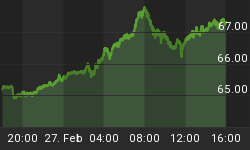Living realistically is not something anyone wants to do in an election year, and it may be especially difficult for the Baby Boomer generation to grasp, along with their children. Over the last two decades as wages swelled, and job prospects were unlimited, the Baby Boomers became accustomed to living well beyond their means. Moreover, if money wasn't coming in fast enough, there was either a stock market or housing bubble to tap into to keep spending alive. Even condominium buildings were built and given names with this in mind.
A high-rise condominium completed around 2005 in Boca Raton, Florida, was named "Luxuria". Models are lavishly decorated with names like "Milano" and "Toscana". The project back then was marketed as "a gem and one of the most spectacular preconstruction projects in Florida". One ad even claimed it would be "an exceptional privilege" to live there.
The last time I drove by the "Models Open" signs were flapping in the wind, many units remained unsold, and prices were slashed (still extraordinarily expensive) with no buyers in sight. My research also indicates that well over one-half of the units are still owned by the developer.
American Boomers thought that the future would always bail them out, but the future is here and the house is upside down, the credit cards are maxed out, and job stability has vanished. The prosperity they thought they had achieved was only a fantasy and the Boomers have now become the Baby Busters.
When you actually sit down and examine the cost of living these days, the nickels and dimes can add up real fast. After paying for food, phone, cable, electricity, newspapers, maintenance, gas, taxes, and insurance, most of us are left with only pennies. Also, a healthy lifestyle - gym memberships, organic fresh fruits and vegetables - is beyond reach for many creating a frustrated society where diabetes is fast becoming a pediatric disease. It's no wonder fast food restaurants continue to thrive as they cater to the masses; they're inexpensive for sure, but the food can make you obese and send you to the emergency room.
Surprisingly, the Boomers remain in denial and disbelief that the party is over, but perhaps not for long. How can they vacation in Europe or buy that house in the Hamptons when their utility bills and property taxes are eating them alive, as they search for work? Evidence suggests that the behavior of the Baby Busters may be evolving from being frozen like a deer in the headlights, to slow capitulation of letting go of the old lifestyle. Slowly, the second and third home that can't be rented out is being sold or simply abandoned because it's underwater. The first home, a huge McMansion, is being swapped for a more affordable place one-third its size. Not even the very rich can afford to heat or air-condition a place the size of a small hotel, and the Baby Busters are realizing they desperately need to be saving for retirement rather than spending into oblivion.
As my wife and I watch these events unfold before our eyes, we both feel fortunate not to have fed into the frenzy. We never really upsized, perhaps because of our upbringing, but our parents had common sense and a strong work ethic which fortunately rubbed off. More likely, though, it's because my wife and I both lived for decades in Manhattan where the cost of living is extraordinarily high. An average two-bedroom 2-bath apartment there could cost a whopping $1.5 million or more, without a great view. This price point is way beyond the cost of a modest apartment of the same size on the island of Palm Beach, yet we get free parking, a stunning view, and a swimming pool. By focusing on keeping the monthly expense "nut" down and having the old-fashioned attitude that if you can't buy it for cash, you shouldn't buy it at all, we've discovered that, by luck, we managed to downsize by never really upsizing to begin with!
But time is not on our side. Some Baby Busters only have a few years left to provide for retirement. Others might have as much as ten years, which can pass in the blink of an eye. If a Boomer wants to avoid becoming a Buster (living on cheese wiz and saltines) they'll need to do the following: First, cut back by living within their means and stop incurring debt; Second, a safe retirement is unattainable when there is debt so you'll need to cut back even more to pare down that debt; and, Third, you'll need to save. Saving is not easy in a zero interest rate environment but you'll need to save even more because the Fed wants savers to get nothing! Worse yet, counting on winning at the stock market casino is not a plan for the average saver, just a surefire way to make the owners of the casino (Goldman Sachs) rich. So, downsize, pay down debt, and tighten the belt again to save before it's too late!
For far too many Baby Busters living frugally is like being held in purgatory, living without easy credit feels like an excruciatingly slow death, and saving money, while paying back debt, is a living hell.
For lack of a better word, my wife and I were "lucky" to have survived the turmoil of our generation. As my wife politely reminds me from time to time, "it's nice to live in heaven before you die", but the joke is if we had upsized in the '90s like most Boomers, today we would be having a hell of a time.















